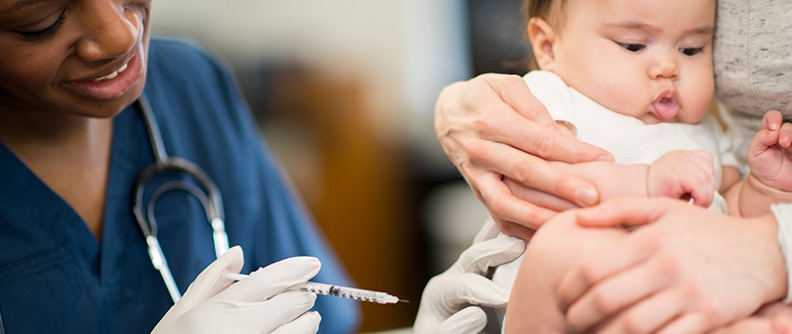Immunizations offer your new baby excellent protection against disease. Infants receive their first shots on a set schedule, which helps ensure that they get the highest possible level of protection. The Centers for Disease Control and Prevention offers a recommended immunization schedule for children and adolescents 18 years or younger.
It’s generally not a good idea to space out or delay vaccinations. Doing so may mean your infant is less protected against some diseases.
Your baby’s first vaccines
Immediately after you give birth, your newborn will receive their first hepatitis B shot. This protects your baby’s liver against this serious disease.
Your baby will receive more shots at their 2-month well-baby visit. They'll get vaccinated against:
- Diphtheria, tetanus, and pertussis (whooping cough)
- Haemophilus influenzae type b (Hib)
- Hepatitis B
- Pneumococcal infection
- Polio
- Rotavirus
Common side effects
Just like any other medications, some vaccines might cause side effects. Your baby may have:
- A low-grade fever
- A mild rash that goes away on its own
- Less interest in eating
- More fussiness or sleepiness than usual
- Pain or soreness where the shot was given
Research shows that vaccines don’t cause conditions like autism. Serious side effects from vaccines are rare. Let your baby’s clinician know immediately if your baby develops a high fever or has trouble breathing after getting a shot.
To help your baby feel more comfortable after a shot, their clinician may suggest giving them acetaminophen (the main ingredient in Tylenol).* It’s a safe and effective option for babies and young children. The clinician will tell you how much to give your baby. Don’t give your baby aspirin or any other pain reliever unless instructed to do so by their clinician.
